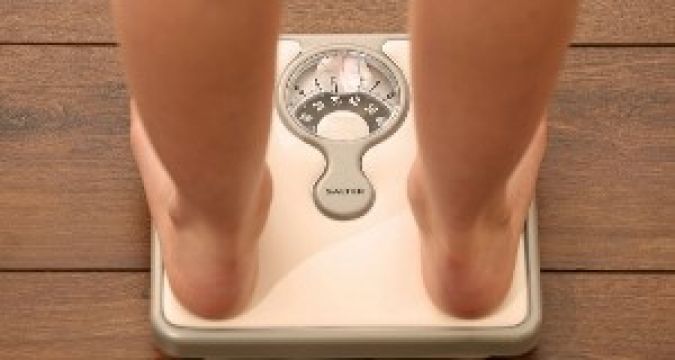In 2020, hospital admissions for eating disorders (EDs) among under 18s increased by 61 per cent on 2019 figures, while a 32 per cent increase was noted among over 18s.
Despite this growth, and a recognition that the Covid-19 pandemic represented a perfect storm for people both with EDs and those at risk of developing them, funding for services has been diverted for the past two years running, with little explanation as to why.
Ahead of Eating Disorder Awareness Week, the Eating Disorder Association of Ireland - Body Whys said the securing of ring-fenced funding for ED services is welcome, but warned that it must come to fruition, and remain year-on-year to adequately support people with EDs in Ireland.
Ellen Jennings, communications officer with Body Whys, explains the pandemic was another external risk factor for people in recovery and at risk of developing an ED because for many it represented a loss of routine and structure for people, and people may not have had access to their usual coping mechanisms.
“The pandemic intensified things for people,” Jennings says, adding: “It created an environment that pushed people who are a risk further towards developing an eating disorder.”
The increases in hospital presentations for EDs in 2020 was not the only sign of how the pandemic has impacted people with disordered eating, with Jennings explaining that Body Whys has seen “a near doubling of attendances” at their support groups, which she says was “consistently the case over the past two years”.
However, despite the prevalence of the issue, with approximately 188,995 people in Ireland expected to experience an eating disorder at some point in their lives according to a report by the HSE in 2018, the provision of services has not been able to stay abreast.
That same HSE report also estimates that each year, roughly 1,757 new cases of EDs occur in the State among people aged 10-49, but yet, since 2016, just €1.77 million of €5.7 million allocated for ED posts has actually been spent.
Minister of State for Mental Health Mary Butler has committed to ensuring the total funding allocation is used to fulfil the aims of the HSE’s Clinical Programme for Eating Disorders.
Recovery
Despite the funding issues and the impact of Covid, Jennings highlights that in 2020, 81 per cent of people who accessed specialised ED services started treatment within four weeks.
“When the treatment facilities are there, people can get access and do get better,” she says.
However, she also acknowledges that recognising when you or someone you know needs help to address an ED or disordered eating is not always easy.
“That first initial contact with a GP can be really difficult for people, and sometimes people may not know that’s the first step when they think something is not quite right with their relationship with food.”
A huge barrier to recognising EDs and those at risk of developing EDs is the stigma attached to these illnesses and the untrue notion that EDs are an issue reserved for teenage girls.
“There’s no picture of what an eating disorder looks like and there are certain factors, both internal and external to the person, that can make them more at risk of coping in that way,” Jennings says.
“We know two of the main factors of developing an eating disorder are low self-esteem and dieting,” she adds, noting that the rise of social media has exacerbated these feelings for many.
We live in a type of world that puts an almost unattainable body on a pedestal
“When we live in a type of world that puts an almost unattainable body on a pedestal, it’s very hard for that not to impact your self-esteem.”
While the fashion industry has long been critiqued for presenting an often unattainable ‘ideal body’, for some, society’s move towards ‘healthier’ lifestyles may just be the other side of the same coin.
Under the guise of wanting to be fit and ‘eat clean’, people at risk of developing an ED can form habits that are nonetheless detrimental.
“The main thing is the compulsion aspect,” Jennings says.
“When you can’t stray from these rules that you’ve made in your mind – that’s when you know that there’s something a bit more going on.”
She adds these signs will look different from person to person, but could present as someone getting upset or stressed because of food, or avoiding situations involving food if they cannot be very controlled and planned.
“It’s also when it’s taking up a lot of mental space, thinking about food, diet and our body, that we need to have little think about our relationship with food.”
As with most issues, prevention is better than cure, and seeing as the average age of onset for anorexia and bulimia nervosa is 14-18 and 12-22 respectively, and the late teens to early 20s for binge eating disorder, education surrounding EDs in schools is the logical place to start.
“[EDs] are more to do with feelings rather than the behaviour, so if we can teach people in schools about how to cope with these feelings, and tell them more about eating disorders so they can recognise different things that might come up within themselves, we could prevent it from getting to an advanced stage.
“With eating disorders, they often happen gradually, so if we could prevent someone from getting to a stage where they require hospital care, that would be beneficial for everyone.”
Awareness week
Looking ahead to Eating Disorder Awareness Week (February 28th-March 6th), an international campaign aimed at highlighting the issue of EDs, Body Whys will be holding a number of online seminars on the theme of ‘Hidden Challenges’.
This will include talks on lesser discussed topics, including lesser known EDs like binge eating disorder and avoidant/restrictive food intake disorder (ARFID), EDs among men, and the stigma attached to EDs.
“We know that people can and do get better,” Jennings says.
“We want to get the conversation started and get people talking about eating disorders, recognising that it could happen to anyone and learning ways to support people.”
More information, support and the full schedule of events for Eating Disorder Awareness Week can be found on the Body Whys website.







